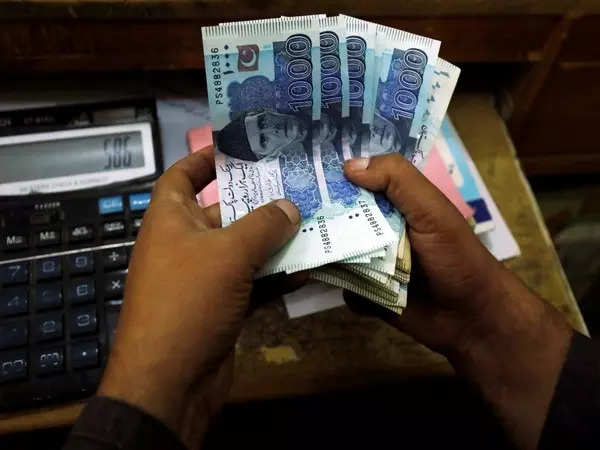ISLAMABAD: Cash-strapped Pakistan is seeking Saudi Arabia’s confirmation for securing additional deposits of $2 billion and a $950 million loan from the World Bank and the AIIB for signing a Staff-Level Agreement (SLA) with the IMF, media reports said on Monday.
Pakistan is eagerly waiting for the $1.1 billion tranche of funding from the International Monetary Fund (IMF), which the global lender is refusing unless crucial decisions are made by the government and implemented.
A top government official dealing with the IMF said, “We are hopeful,” when asked about the possibility of getting assurance on deposits from Saudi Arabia and a loan from the World Bank, The News International newspaper reported.
The linked $950 million loans from World Bank’s Resilient Institution for Sustainable Economy (RISE-II) and Asian Infrastructure Investment Bank (AIIB) will be approved only if Pakistan secures the IMF bailout, Geo News reported.
The cash-starved country is expecting to strike the much-needed agreement with the global lender within the next few days, another top official said, adding that the Fund was reluctant to give any time frame for the signing of the agreement.
“Pakistan is facing difficulty in its talks with the IMF due to the increased hostility between China and the United States as they have to secure the staff-level agreement (SLA) in a delicate balancing act to steer the economy and diplomacy in such a way that suits Islamabad’s larger interest,” the report said.
Islamabad will receive $1.3 billion from China, its all-weather ally, to shore up its fast-depleting forex reserves, finance minister Ishaq Dar said last week after Beijing transferred $700 to the cash-strapped country in February.
Pakistan is taking various steps on the Fund’s behest for the release of a $1.1 billion tranche under the $7 billion loan facility, including unveiling a mini-budget for fetching additional tax revenues of Rs 170 billion by raising the GST rate from 17 per cent to 18 per cent.
The government has also raised the power tariff by over Rs 7 per unit, another imposition of power surcharge of Rs 3.82 per unit, increased the gas tariff, allowing massive adjustments in the exchange rate, increased the petroleum development levy and hiked the policy rate by 300 basis points, jacking it up from 17 per cent to 20 per cent, the report said.
Pakistan and the IMF have been holding virtual talks after the two sides held 10 days of intensive negotiations with an IMF delegation in Islamabad from January 31 to February 9, which failed to reach an agreement on the $1.1 billion tranche of funding from the global lender.
Pakistan is eagerly waiting for the $1.1 billion tranche of funding from the International Monetary Fund (IMF), which the global lender is refusing unless crucial decisions are made by the government and implemented.
A top government official dealing with the IMF said, “We are hopeful,” when asked about the possibility of getting assurance on deposits from Saudi Arabia and a loan from the World Bank, The News International newspaper reported.
The linked $950 million loans from World Bank’s Resilient Institution for Sustainable Economy (RISE-II) and Asian Infrastructure Investment Bank (AIIB) will be approved only if Pakistan secures the IMF bailout, Geo News reported.
The cash-starved country is expecting to strike the much-needed agreement with the global lender within the next few days, another top official said, adding that the Fund was reluctant to give any time frame for the signing of the agreement.
“Pakistan is facing difficulty in its talks with the IMF due to the increased hostility between China and the United States as they have to secure the staff-level agreement (SLA) in a delicate balancing act to steer the economy and diplomacy in such a way that suits Islamabad’s larger interest,” the report said.
Islamabad will receive $1.3 billion from China, its all-weather ally, to shore up its fast-depleting forex reserves, finance minister Ishaq Dar said last week after Beijing transferred $700 to the cash-strapped country in February.
Pakistan is taking various steps on the Fund’s behest for the release of a $1.1 billion tranche under the $7 billion loan facility, including unveiling a mini-budget for fetching additional tax revenues of Rs 170 billion by raising the GST rate from 17 per cent to 18 per cent.
The government has also raised the power tariff by over Rs 7 per unit, another imposition of power surcharge of Rs 3.82 per unit, increased the gas tariff, allowing massive adjustments in the exchange rate, increased the petroleum development levy and hiked the policy rate by 300 basis points, jacking it up from 17 per cent to 20 per cent, the report said.
Pakistan and the IMF have been holding virtual talks after the two sides held 10 days of intensive negotiations with an IMF delegation in Islamabad from January 31 to February 9, which failed to reach an agreement on the $1.1 billion tranche of funding from the global lender.
